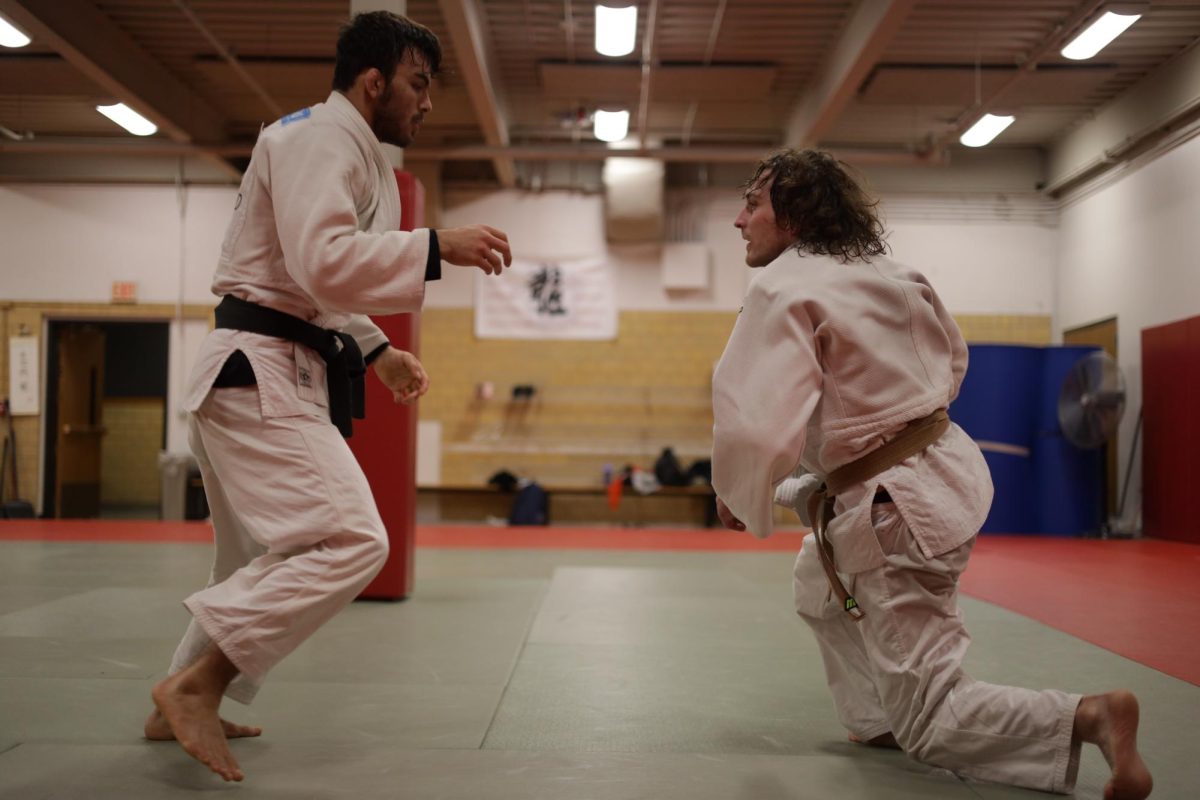COLUMN:I’m one of them . aren’t we all?
September 5, 2002
During this past summer while visiting a friend in Memphis I experienced what comedian Dave Chapelle describes as a “totally ultimate racist” experience. This where something so racist happens to you that you just don’t know what do. In his stand-up act he describes a time when he was in the South eating at a restaurant. The waiter comes up to him and directly tells him he wants chicken cause he was black. Chapelle jokingly goes on to say that he really did want chicken and he didn’t know just “because he was black he was pre-disposed to love chicken.”
This is the story of my “totally ultimate racist” experience. My anecdote won’t have the hilarious flair like Dave Chapelle’s has but there is a valuable lesson within it. I was standing in line trying to get my flight rescheduled because of bad weather. There were two young women behind me in the same predicament.
We started to drum up conversation about United’s bad service and so on. One of the women was going back to school in Chicago and the other was going to visit her husband in Syria. So, one of the women (the woman visiting her husband in Syria) suspiciously asked me about my hat and if it was the school I attended. I said yes, thinking nothing of it. The conversation continued and we talked about various things, from how our trip to Memphis was to our career goals and aspirations. During the conversation she keeps on saying to me you aren’t like and don’t sound like the rest of “them.” I sat there pondering for a second. I thought the statement was peculiar and tried to dismiss it thinking she was talking about being me not sounding like a Memphisian.
She then says: “I am not racist or anything but.” and asks what race is my girlfriend. I thought, “what does that have to do with anything,” but I decided to answer her.
I don’t have a girlfriend but, I thought it would be a great opportunity to make a point. I laughed at the question and responded, “She is black.”
She responded, “Wow, I would have never guessed that you would have a black girlfriend because you are so proper and respectable unlike the rest of them. I would have swore you would have a white girlfriend because they seem like they would suit you better.”
All of a sudden it started to click about what she meant during the whole conversation using “them.” I was sitting there stuck in a “totally ultimate racist” experience like Dave Chapelle jokingly says. I laughed again and explain to her how she has finally met someone really no different than “them” and to not think I am some freak of nature because there are millions of black people just like me.
This experience made me really realize how “pre-judgmental” our society is. We often look at an individual and feel we can tell their whole profile from sex, race, height, weight, style of dress, etc. Here, there was a woman who had prejudged me because of some stereotypical view she had of African-Americans. It didn’t shock me at all this happened. It has happened to me before in high school and even here at good ol ISU.
Will we ever get past this ignorant thought process?
Who knows. Probably not in our lifetime, but it doesn’t give us an excuse not to try. Just like Chapelle’s sketch, my experience displays a side of life of America may not understand. Though we are all misjudged anyone on the minority is prejudged the most. We have to make the generations after us not just more intelligent and advanced scientifically than us but more socially conscious and ethically aware than us. It will only happen if we want it to.
Though many things have changed in this country many things are also still the same. There are many times we can say we don’t discriminate or prejudge someone else but there are many times we do. Yes, it is a somewhat natural process to make judgments about someone from when we first see them. Yet if we carry those judgments along in our interactions with them, that’s where the problem arises.
We all walk across campus every day or through our daily lives and make assumptions about people for various reasons. We as college students have to take the initiative to look and think outside the box. We have the opportunity in college to meet all kinds of people who can negate any stereotype we have of any group of people. And if America is suppose to be beautiful let us look at each other as beautiful.
Darryl Frierson
is a junior in journalism and mass communication
and history from
St. Louis, Mo.






